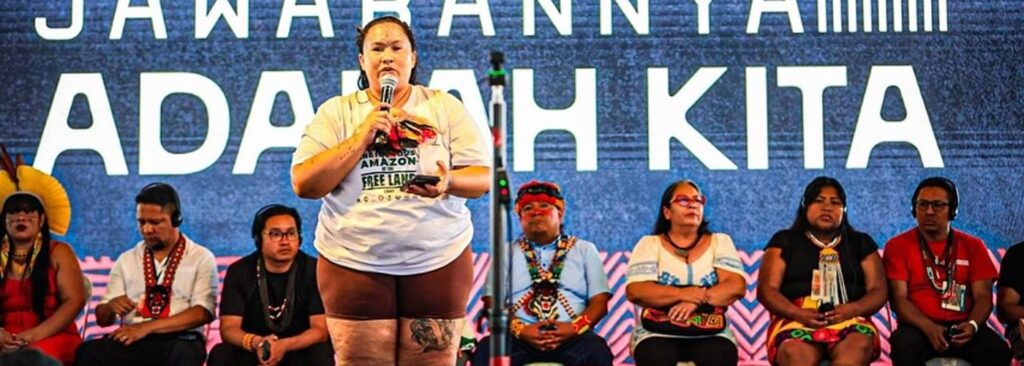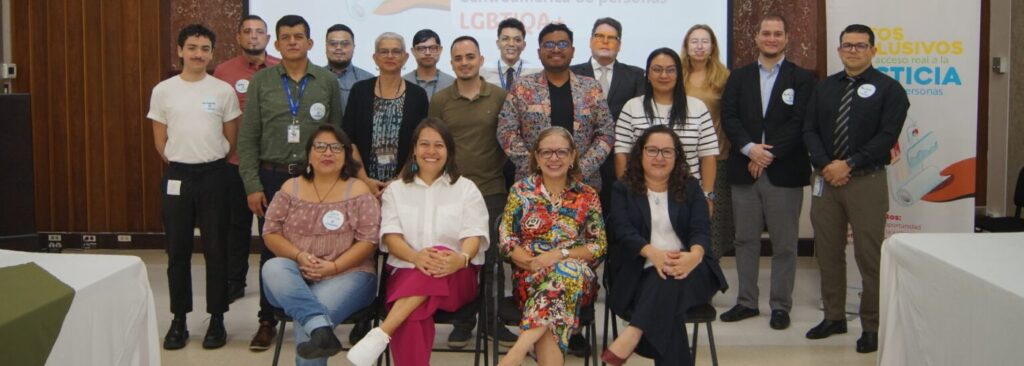Front Line Defenders is looking to recruit a consultant to perform a Mid-Term Review. The purpose of this external MTR is to assess the relevance, coherence, effectiveness, and emerging outcomes of the Holistic Protection Consortium’s efforts to enhance the safety of human rights defenders (HRDs) worldwide.
PLEASE NOTE: This consultancy is contracted through Front Line Defenders
ToR details
Location: home-based
Type of contract: self-employed consultancy contract
Estimated start date: August 11, 2025
Estimated end date: September 30, 2025
Deadline for applications: July 31, 2025
To apply: please submit a CV, examples of previous work, and technical and financial proposals to (cpeel@frontlinedefenders.org)
Program background
The Holistic Protection Consortium aims at ensuring greater safety, both online and offline, for human rights defenders (HRDs) worldwide through a holistic program of preventative and protective safety support including physical, digital, legal, and psychosocial safety.
The program focuses on the most vulnerable, marginalized and at-risk HRDs, including but not limited to those in conflict and crisis, WHRDs, LGBTIQ+ defenders, environmental defenders, and Indigenous rights defenders, while applying gender, feminist and intersectional protection approaches. Specific outcomes of the program include:
- HRDs have better access to 24/7 protection mechanisms to respond to urgent safety threats
- HRDs are better equipped and resourced to prevent and mitigate urgent and structural safety threats
- Strengthened protection environment and legitimacy of HRDs
The Consortium unites the expertise of Access Now, Digital Defenders Partnership (hosted by Hivos), and Front Line Defenders. The program started on January 1, 2023 and is planned to end on December 31, 2027.
Objectives and key questions of the mid-term review
The purpose of this external MTR is to assess the relevance, coherence, effectiveness, and emerging outcomes of the Holistic Protection Consortium’s efforts to enhance the safety of human rights defenders (HRDs) worldwide. The evaluation will examine the extent to which the Consortium’s holistic protection model — encompassing digital, physical, legal, and psychosocial safety — has improved HRDs’ access to emergency support, strengthened their ability to prevent and mitigate safety risks, and contributed to a more enabling protection environment.
The evaluation will cover the period from the program’s inception on January 1, 2023, through to its midpoint on June 30, 2025. It will include an assessment of progress against key indicators outlined in the program’s logical framework to determine the extent of implementation and emerging change. While the program’s ultimate goal is to ensure long-term safety and sustainability of HRDs and their movements, this evaluation will focus on measuring progress toward this goal, capturing lessons learned, and identifying opportunities for improvement. It will place particular emphasis on support to the most marginalized and at-risk HRDs, including WHRDs, LGBTIQ+ defenders, environmental and indigenous rights defenders, minority rights activists, refugee and migrants’ rights groups, and those working in conflict and crisis settings.
The evaluation will also assess how well the program has integrated and is beginning to demonstrate outcomes from gender-sensitive, feminist, and intersectional approaches. It should also reflect, where relevant, how Front Line Defenders’ emerging results contribute to its broader organizational results framework as articulated in the strategic plan. Below is a list of key evaluation questions that can be revised by the consultant during developing the inception report if needed:
Relevance and coherence
1. To what extent is the holistic protection approach relevant to the safety needs of HRDs across different contexts and identities?
2. How coherent is the program’s design and implementation across its three result areas and among Consortium partners?
3. How effectively does the program address the needs of the most vulnerable, marginalised and at-risk HRDs?
Effectiveness
4. To what extent have HRDs been able to access timely, appropriate, and holistic emergency protection support?
5. How effective has the program been in building HRDs’ capacity to prevent and mitigate digital, physical, legal, and psychosocial threats?
6. How successful has the program been in strengthening networks, alliances, and collective protection mechanisms at national and regional levels?
7. How well has the program supported strategic advocacy to improve protection environments and the legitimacy of HRDs?
Emerging outcomes and sustainability
8. What early outcomes can be observed in terms of improved safety, resilience, and capacity of HRDs and their organizations?
9. Are there signs that the program is contributing to more sustainable and locally-led protection structures? 10. How is the program addressing sustainability of its support beyond its implementation period?
Context and risk analysis
11. How effectively does the program identify and manage contextual and programmatic risks, including those related to Sexual Exploitation, Abuse, and Harassment (SEAH), fraud, and corruption, and how are these risks integrated into the program’s Theory of Change and implementation strategies?
Cross-cutting issues
12. To what extent have gender-sensitive, feminist, and intersectional approaches been meaningfully integrated and reflected in activities, partnerships, and outcomes?
13. How does the program ensure conflict sensitivity and apply a ‘do no harm’ approach, particularly in volatile contexts?
14. What are the main lessons learned that can inform future programming and strategic direction?
Methodology
The evaluation will adopt a mixed-methods approach, combining qualitative and quantitative data collection and analysis to ensure a comprehensive and context-sensitive assessment. The methodology should be participatory, inclusive, and responsive to the protection concerns and intersectional identities of HRDs, particularly those from marginalized groups. Key components of the methodology will include:
- Document review: Analysis of relevant program documentation including the proposal, theory of change, logical framework, annual reports, internal assessments, case studies, protection grants data along with other relevant program documents, as well as Front Line Defenders’ strategic plan and its corresponding results framework.
- HRD consultations: Remote consultations with HRDs, ensuring representation across regions, risk profiles, and identity groups.
- Key informant interviews (KIIs): Semi-structured interviews with a diverse group of stakeholders, including Consortium staff, partners, donors, and external protection actors.
- Surveys: Targeted surveys (where feasible) to gather perspectives from a broader sample of at least 67 HRDs.
- Analysis of program data: Review of monitoring and evaluation data to assess progress against the logical framework indicators and identify trends or gaps.
The methodology must apply a conflict-sensitive and do-no-harm lens, with appropriate measures in place to protect the confidentiality, security, and informed consent of all participants. It should also incorporate a gender, feminist, and intersectional analysis, aligned with the Consortium’s core approaches. The methodology should also assess the program’s risk management systems, including how risks related to SEAH, fraud, and corruption are mitigated. The consultant will be expected to refine the methodology in consultation with the Consortium during the inception phase and present it in an inception report prior to data collection.
Deliverables
The consultant is expected to deliver the below documents:
- Inception report along with data collection tools
- Draft MTR report
- Final MTR report, including an annex with reflections on Front Line Defenders’ results in relation to the organizational results framework derived from the strategic plan
- Presentation including summary of findings and recommendations
Timeline
- Document review of relevant program documents as well as Front Line Defenders’ strategic plan and its corresponding results framework, and submission of inception report and data collection tools – August 20, 2025
- Primary data collection with different program stakeholders – September 5, 2025
- Submission of draft MTR report – September 19, 2025
- Submission of final MTR report and summary presentation – September 30, 2025
Required expertise and qualifications
- In-depth knowledge of holistic safety and protection strategies for HRDs, including digital, physical, legal, and psychosocial dimensions
- Familiarity with protection frameworks, tools, and methodologies used by international human rights organizations
- Experience in using quantitative and qualitative research methods to evaluate human rights programs
- Demonstrated experience working with vulnerable, marginalized and at-risk HRDs
- Proven ability to evaluate programs that incorporate gender-sensitive, feminist, and intersectional protection approaches including in conflict contexts
- Strong analytical, communication, and report writing skills in English
Payment terms
- 25% of the total payment will be issued upon signing the contract
- 25% of the total payment will be issued after the submission of the inception report and data collection tools
- Remaining 50% of the total payment will be issued after the submission of the final report and summary presentation
Confidentiality and data protection
The consultant must treat all information with strict confidentiality and ensure that data is handled and stored in compliance with the EU General Data Protection Regulation (GDPR) and data security standards. They will be required to read and sign relevant organizational data security and protection policies before starting the assignment.




